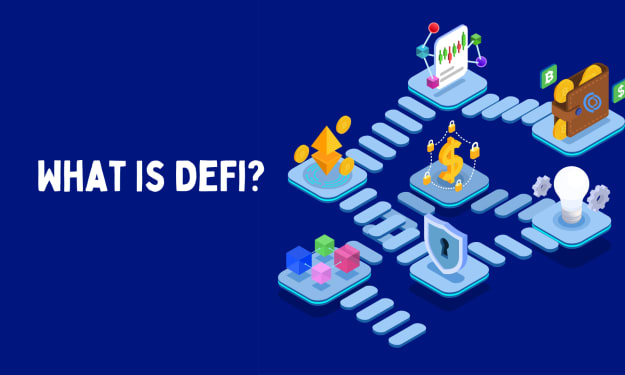How can Web3 Decentralized Applications Revolutionize Finance?
Web3 Decentralized Applications

For a long time now, traditional financial institutions have faced outrages from people due to the contribution of arbitrary factors in valuing or devaluing currencies. Cryptocurrencies evolved as a result, and they have been increasingly adopted globally. Such tokens have enabled the growth of decentralized finance platforms, which are part of the Web3 decentralized application ecosystem. The DeFi market is still evolving, which makes it difficult to calculate its market cap, although experts predict that it might have well crossed the billion-dollar mark long back. The below topics discuss different aspects of decentralized finance.
DeFi Lending and Borrowing
DeFi lending and borrowing platforms work on loaning operations for cryptocurrencies. These platforms are powered by advanced smart contracts that decide how transactions occur and who should take up roles (lender and borrower). They also have access to various fiat payment gateways and provide flash loans and margin trading. Such platforms banish the barriers to getting money by disabling transaction censorship and enabling quick access.
DeFi Staking
DeFi staking platforms work using huge liquidity pools, where crypto holders would invest their cryptocurrencies to earn rewards as passive income. These platforms are not standalone but comprise a part of another DeFi platform, such as a decentralized exchange (DEX). The rewards earned depend on various factors, such as staked amount, staking duration, inflation, and platform dynamics, among others. These rewards can be platform-native tokens or cryptocurrencies that vary with each staking platform.
DeFi Yield Farming
While DeFi yield farming involves the usage of multiple simultaneous trading moves on a trader’s crypto holdings to increase their crypto holdings, exclusive platforms for such operations are still fewer. These operations involve liquidity providers who contribute to liquidity pools to create new markets. DeFi operations used in yield farming include staking, borrowing, lending, mortgaging, and exchanging, which enable the growth of assets when done simultaneously.
DeFi Wallets
A DeFi wallet is a necessary element for any transaction in the Web3 space as the number of non-custodial venture platforms is increasing day by day. These wallets help in storing the private keys using which crypto assets of a user can be accessed and transacted. These wallets also serve as identities in Web3 decentralized applications, hence not letting out any sensitive information.
DeFi Tokens
DeFi tokens can be cryptocurrencies or native tokens for decentralized platforms. These tokens have the advantage of being publicly verifiable and viewable, while transactions are not overseen or orchestrated by a central authority. These tokens primarily serve rewarding purposes in other DeFi platforms that have created separate markets for themselves. Decentralized finance tokens have a pivotal role in other DeFi operations as these are fundamentally tender tokens.
Decentralized Exchange (DEX) Platform
Decentralized exchange (DEX) platforms are crypto exchanges that enable true peer-to-peer transactions. These platforms do not have a central governance structure which can be observed by their usage of smart contracts and non-custodial nature. They have automated market maker (AMM) protocols that can ensure that liquidity is always high and also allows users to contribute to them in exchange for rewards through staking processes. DEXs are currently a great Web3 business option due to them being entry points for the crypto world.
DAO Protocols
Decentralized Autonomous Organizations (DAOs) are automated protocols that govern communities in Web3 decentralized platforms. These are pre-defined conditions written into smart contracts that execute automatically when the conditions are satisfied. These eliminate the traditional hierarchical governance protocols in businesses, as decisions can be made collectively through voting consensus. DAO protocols also disable abrupt outages due to governmental pressure, as every change to be made in smart contracts needs to pass a referendum first.
Closing Thoughts
Henceforth, decentralized finance platforms can be viable business models in current times due to their increasing popularity powered by the crypto boom. One cannot simply ignore the fact that Web3 space is here to impact the world, although not in ways that naysayers propagate. The technology would cause some irreversible changes for the betterment of the general humankind, which needs to have total control over its data.
For a startup enthusiast looking at this blog, DeFi can be a great avenue to run a venture, and a seasoned Web3 development firm like Blockchain App Factory can be helpful to assist in the journey of building a platform.
About the Creator
Darly Dixon
Digital Marketing Analyst






Comments
There are no comments for this story
Be the first to respond and start the conversation.